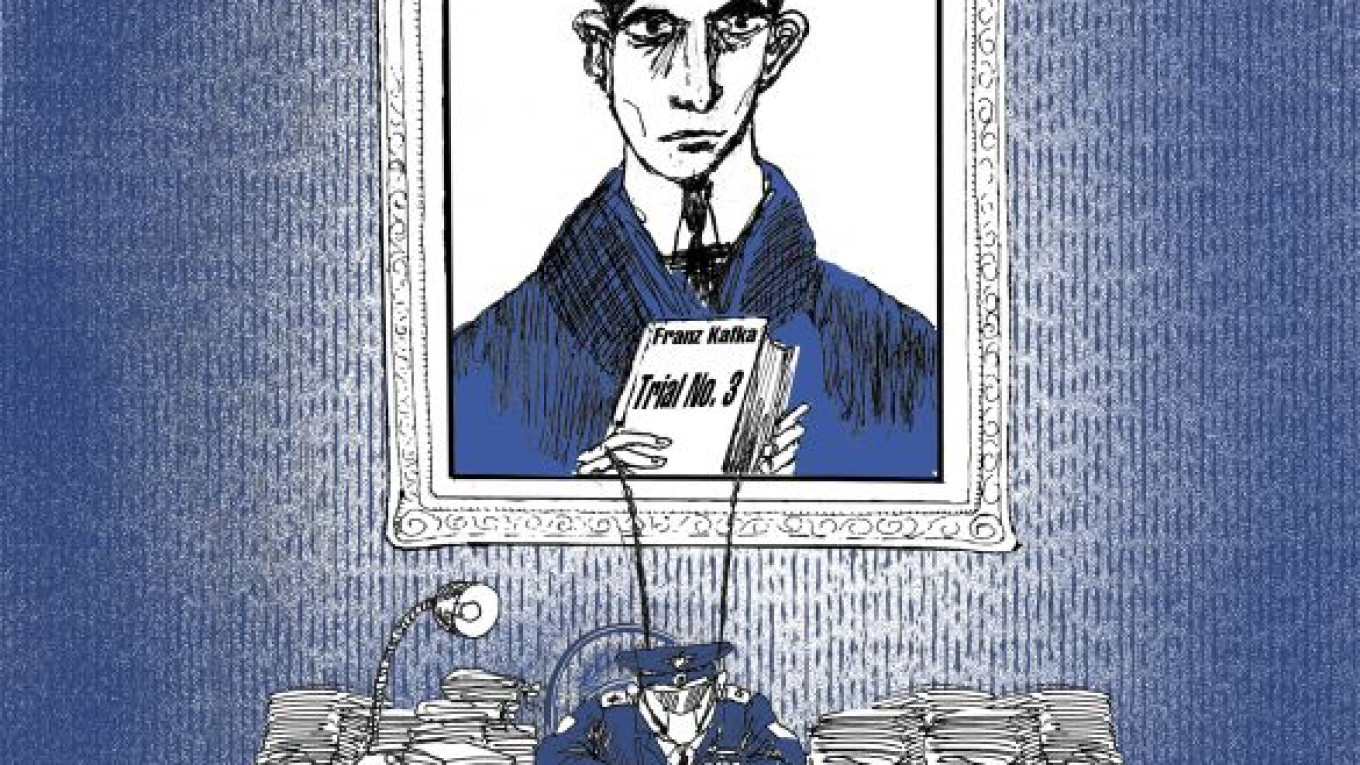A third criminal case against former Yukos CEO Mikhail Khodorkovsky is looking increasingly likely. If it materializes, he could remain behind bars past 2014, when the prison term for his second criminal conviction will end.
Meanwhile, Moscow's Simonovsky District Court again sentenced another former Yukos business partner, Leonid Nevzlin, in absentia — this time to six years in prison for having allegedly stolen oil company shares in 1998. Nevzlin, who has lived in Israel since 2003, was already sentenced in absentia in 2008 to life in prison for allegedly ordering a series of murders between 1998 and 2002.
In addition, state-controlled NTV, which functions as the mouthpiece for the lion's share of the Kremlin's smear campaigns against the opposition, aired another piece of yellow journalism in one of its "investigative" shows, linking the 1998 murder of Nefteyugansk Mayor Vladimir Petukhov with Khodorkovsky and Yukos interests. Pro-Kremlin analysts appeared on the program, claiming that the killing was committed with Khodorkovsky's knowledge. Even President Vladimir Putin has alleged several times that Khodorkovsky has blood on his hands.
At the same time, the Kremlin is ratcheting up its campaign against independent analysts. Tamara Morshchakova, a former Constitutional Court judge and one of the country's most influential lawyers, along with Mikhail Subbotin, an economist with the Higher School of Economics and one of nine experts who took part in the public review phase of the second Yukos trial, were both questioned by officials from the Investigative Committee. When former New Economic School rector Sergei Guriev was similarly questioned recently and told he must divulge his last five years of personal e-mails, he responded by emigrating to France. In May, Russian and Kazakh investigators spent three days questioning Yelena Novikova, another co-author of the presidential human rights council report on the second Yukos trial and the head of the Center for Legal and Economic Studies in Almaty.
The siloviki are trying to cook up a global conspiracy theory whose main mission is to gain Khodorkovsky's release and replace Russia's current political and legal system with a more humane, democratic one. The siloviki sincerely believe that such a move would threaten the very foundation of the state.
According to the court order authorizing the recent interrogations and searches, Khodorkovsky allegedly used funds he had previously stolen from Yukos to pay independent, prominent experts to publish articles and to hold public round-table discussions to "manipulate public opinion" and try to whip up popular support for liberal reform programs.
Yet none of the experts involved in the experts' review of the second Yukos trial was paid. All six Russians and three foreigners worked pro bono on behalf of the president's human rights council, and it was then-President Dmitry Medvedev's who asked the experts to analyze the trial and verdict. The authorities are looking for any money the experts earned from any source to later use it as "proof" of Khodorkovsky's involvement and his attempt to influence the country's political course. These experts might even be charged with "obstruction of justice," although the public review phase was conducted after the second Yukos verdict was enforced and could not possibly have influenced the decision of the court.
Each successive set of charges in the Khodorkovsky and Yukos affairs is more absurd than the last. The first accused both of fraud and tax evasion, even though Yukos paid more taxes into the national budget than any other firm in Russia. The second case alleged that Khodorkovsky stole all of the oil the company had extracted over the previous decade. The third accusation is the most ridiculous of all — that Khodorkovsky led a global conspiracy to manipulate Russian popular opinion and liberalize the country.
For the first time after the Soviet collapse, the publication of articles and participation in roundtable discussions have essentially become criminal acts.
The third case against Khodorkovsky is ostensibly a continuation of the investigation into the first case in 2003 and even involves the same investigators. Putin has repeatedly made it clear that he hates Khodorkovsky. As long as Putin is in power, investigators and the courts will continue their endless attempt to prove that he is guilty, no matter how absurd or Kafkaesque the accusations might become.
Vladimir Ryzhkov, a State Duma deputy from 1993 to 2007, hosts a political talk show on Ekho Moskvy radio and is a co-founder of the opposition RP-Party of People's Freedom.
Related articles:
A Message from The Moscow Times:
Dear readers,
We are facing unprecedented challenges. Russia's Prosecutor General's Office has designated The Moscow Times as an "undesirable" organization, criminalizing our work and putting our staff at risk of prosecution. This follows our earlier unjust labeling as a "foreign agent."
These actions are direct attempts to silence independent journalism in Russia. The authorities claim our work "discredits the decisions of the Russian leadership." We see things differently: we strive to provide accurate, unbiased reporting on Russia.
We, the journalists of The Moscow Times, refuse to be silenced. But to continue our work, we need your help.
Your support, no matter how small, makes a world of difference. If you can, please support us monthly starting from just $2. It's quick to set up, and every contribution makes a significant impact.
By supporting The Moscow Times, you're defending open, independent journalism in the face of repression. Thank you for standing with us.
Remind me later.


